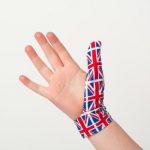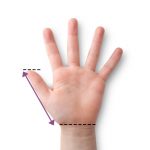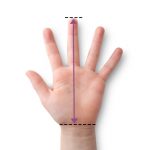As parents and teachers, we are always amazed by how quickly our children grow and learn. From the first time they smiled without teeth to the first time they took a few shaky steps, every milestone is a reason to celebrate. One of these early stages of growth is thumb sucking, which seems like a harmless habit that many children pick up on their own. Thumb sucking can make babies and toddlers feel calm and safe, but it’s important to know how it might affect their tooth health in the early years.
When you see a baby happily sucking their thumb, it might warm your heart, but under the surface, a lot is going on that could affect the health of their teeth and jaws as they grow up. Pediatric dentists and experts have looked into the complicated link between sucking one’s thumb and tooth growth. This has shed light on the possible effects of this seemingly harmless habit.
What Is Thumb Sucking?
Infants and young children frequently suck their thumbs to calm down due to their need for solace and security. It is a natural tendency that responds to hunger, fatigue, and emotional anguish under specific conditions. When a child sucking their thumb, the rhythmic motion and moderate pressure have a calming effect similar to that of the womb.
Self-soothing induces the release of endorphins, which relax and make you joyful, making it an ideal morning activity. Thumb sucking becomes an instinctive coping mechanism that helps children traverse their formative years and improves their emotional health.
Prevalence of Thumb Sucking in Infants and Toddlers
Infants and toddlers frequently sucking their thumbs. This is a common method for young toddlers to fall asleep. According to studies, the majority of neonates thumb-suck during their first few months. This practice is estimated to affect between 75% and 95% of infants. Even though fewer adolescents practice it as they age, significant numbers of adults do so. This prevalence depends on the child’s temperament, cultural norms, and emotional state. Understanding the prevalence of thumb feeding is essential for addressing its potential effects on the oral and dental development of young children.
Want to know more about thumb sucking?
We provide a detailed analysis of thumb sucking and highlight a range of key statistics from organisations such as the British Orthodontic Society, the American Dental Association, the Mayo Clinic and Colgate. Find out moreFactors Contributing to the Continuation of the Habit Beyond Infancy
Some neonates continue thumb sucking into the toddler and preschool years for a variety of reasons. Thumb sucking assists children in overcoming dread, anxiety, and boredom. This relationship is crucial, and thumb feeding helps children develop it. In addition, environmental stimuli, such as pacifiers or other oral comfort items, may aid in the practice.
Children who are gently dissuaded by their parents are more likely to persist with the behavior. Family relationships and parental styles also influence the persistence of habits. Normalization of the behavior by peers or culture may also contribute to its persistence. Recognising the multiple factors at play is crucial for developing strategies that can assist children in kicking the habit and developing healthy dental practices.
Potential Effects of Thumb Sucking on Dental Health
A. Dental Misalignment and Malocclusion
Malocclusion, also known as dental misalignment, refers to a variety of conditions in which the teeth do not align correctly. Malocclusion may result in congestion, spacing problems, overbites, underbites, crossbites, and open bites. Malocclusion may be caused by genetics, prolonged formula feeding, thumb sucking, dummy use, and other early childhood oral behaviors. Without treatment, malocclusion can harm chewing, speech, and teeth. Not only can it affect an individual’s appearance, but also their dental health and quality of life. Dentists advise prompt regulation and correction of malocclusion for optimal dental function and a confident visage.
B. Changes in the Palate and Roof of the Mouth
Long-term thumb suction can alter the palate and roof of the mouth, leading to oral development problems. The roof of the mouth can be constricted and arched by the persistent pressure of the thumb. This change in palate shape may impact the alignment of primary and permanent teeth, resulting in malocclusion. Additionally, thumb sucking may alter the position of the upper mandible, which may result in an improper bite alignment. Recognising the risk of these changes highlights the significance of early treatment of thumb sucking to prevent structural abnormalities and dental and orthodontic issues.
Thumb and finger sucking habit?
Help your child prevent the problems that prolonged and aggressive thumb and finger sucking can cause Buy NowC. Impaired Speech Development and Articulation
The impact of long-term thumb sucking can affect the speech and articulation of young children. As a child’s speech develops, tongue posture and oral structural alignment are crucial for generating precise sounds and phonemes. Long-term thumb sucking can alter the natural position of the tongue, influencing coordination and articulation. This disturbance may result in lisping or difficulty articulating consonants. Once children acquire clear and effective communication skills, they must cease sucking their thumbs. This establishes the foundation for positive interactions as children mature.
The Impact of the Intensity and Frequency of Thumb Sucking
The frequency and intensity of thumb suction can have a negative effect on oral development. In comparison to forceful and frequent thumb sucking, occasional and delicate thumb sucking poses fewer risks. A child who vigorously and for an extended period of time suckling their thumb places additional pressure on their developing oral structures, which can lead to dental misalignment, palate changes, and speech issues. Parents and other carers should evaluate the intensity and frequency of their child’s thumb feeding and intervene if it becomes more violent or habitual. By comprehending the effects of intensity and frequency, it is possible to prevent oral health problems and promote a healthy mouth.
The Relationship Between Extended Thumb Sucking and Dental Issues
If left untreated, sucking one’s thumb can result in a variety of dental issues that can persist into adulthood. Swallowing the thumb for an extended period of time and with sufficient force can exert pressure on developing teeth and oral structures, resulting in misalignment, malocclusion, and changes in palate contour. These effects can enhance the appearance of the smile but make chewing, speaking, and dental hygiene more difficult.
Thumb sucking can lead to dental problems, so it is crucial to take preventative measures early on to avoid long-term effects that may require orthodontics or other corrective procedures. This habit must be broken early, preferable in childhood, to ensure a lifetime of good oral health and wellness.
Identifying When Intervention May Be Necessary
The ideal time to intervene in prolonged thumb sucking requires careful observation and deliberation on the part of the carer. If a child continues to thumb suck until the age of three or four, when all 20 permanent teeth have erupted, and the habit worsens or becomes more frequent, assistance may be required. This is a general rule of thumb.
Changes in tooth alignment, palate shape, or speech development should prompt consultation with a pediatric dentist or orthodontist. Each child is an individual with unique circumstances; therefore, any intervention must be tailored to their emotional attachment to the habit, their willingness to quit, and their psychological triggers. It is possible to prevent thumb sucking and promote healthy oral development by responding promptly and sensitively to the behavior.
Fabric Thumb Guards
Worn day and night a Thumbsie® thumb guard can help your child to stop thumb sucking Buy NowStrategies for Breaking the Habit
Children’s thumb-sucking habits must be broken using positive reinforcement, encouragement at the child’s pace, and perseverance. First and foremost, have an open and supportive conversation with the child about why they wish to cease thumb sucking and any concerns or fears they may have. Locating the triggers and substituting other self-soothing practices or comforting objects for thumb suction may be effective in modifying the behavior.
When a child makes decisions, he or she feels more in control of kicking the habit. Praise and awards for accomplishments and efforts are motivating, but the key is consistency. Reminders that are reassuring and guiding should be given in a calm manner, whereas actions that are negative or punitive may cause tension and resistance. The objective is to establish a supportive environment that helps the child cease sucking their thumb and learn healthy stress management techniques.
Potential Emotional and Psychological Aspects
To effectively treat thumb sucking, it is necessary to identify its emotional and psychological causes first. When experiencing stress, anxiety, or tedium, sucking one’s thumb can be calming. Children may develop an emotional attachment to this behavior, making it difficult to halt them. When parents and other caretakers comprehend the emotions underlying thumb sucking, they can provide alternative coping strategies.
Open communication and a secure environment in which children can express their emotions can aid in their adjustment. If the emotional pain is protracted or if the behavior seems to be rooted in deeper psychological issues, child psychologists and mental health professionals can help break the habit and treat any underlying emotional needs.
The Role of Pediatric Dentists
A. Importance of Regular Dental Check-Ups From an Early Age
In order to maintain excellent oral health throughout childhood, children should begin receiving routine dental examinations. These visits lay the groundwork for future dental care by allowing dentists to evaluate tooth development and alignment, identify problems early on, and implement appropriate solutions swiftly. Early detection of tooth decay, malocclusion, and dummy or thumb sucking effects is possible for pediatric dentists. Additionally, parents and children are instructed on how to care for their teeth and gums, promoting a preventative approach to oral health. By providing their child with routine dental examinations, parents can encourage a lifetime commitment to oral health and a beautiful smile. The child should adhere to this routine throughout childhood.
B. Pediatric Dentists’ Advice on Monitoring Dental Development
Due to their expertise, pediatric dentists can advise parents on their children’s dental development. These specialists emphasize the importance of early dental care and routine exams to ensure the eruption and alignment of primary teeth. Pediatric dentists assist parents in identifying prospective problems, such as malocclusion or palate changes, which are frequently caused by thumb sucking. They aid parents in identifying irregularities in primary and permanent tooth eruption by revealing the correct order. Collaboration with Sunnyvale Dental Clinic aids parents in early detection of tooth problems. This enables rapid interventions to promote healthy oral development and eliminates the need for more extensive dental procedures.
C. When and How Pediatric Dentists Might Recommend Intervention
During routine examinations, pediatric dentists frequently recommend therapy for patients who exhibit signs of prospective tooth problems. The timing of intervention depends on the nature of the problem and the child’s age and development. If thumb feeding persists past the ages of three or four and causes malocclusion or other dental issues, intervention may be recommended.
Each child’s dental and overall health will be assessed as well as the intensity, frequency, and emotional readiness to quit the habit by pediatric dentists. Interventions may include behavioral techniques, orthodontic appliances, and psychological support. Pediatric dentists recommend aggressive early intervention to prevent more complex dental disorders, promote oral development, and encourage healthy smiles for a lifetime.
Conclusion
The impact of thumb sucking negatively affects the dental health of infants and young children, an issue that must be addressed by parents and other primary carers. As stated above, thumb sucking is a natural behavior that reassures and comforts infants and young children. If allowed to persist until a certain age, it can result in dental problems, some of which may be permanent.
Thumb sucking can lead to malocclusion, speech difficulties, and tooth and jaw alignment alterations. Parents must be aware of the dangers and take precautions in order to assist their children in kicking this habit at the appropriate age. Important are open communication with children, an understanding of the causes of thumb sucking, and the teaching of coping strategies.
Please note all comments will need to be approved before appearing on this page. Please respect others when posting.



































Comments